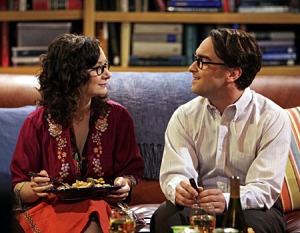Today, I read that one of my favorite shows, NBC’s Parks and Recreation, is struggling so much in the ratings that they have enlisted the wooden, blank-eyed talents of pretty boy Rob Lowe to help attract female viewers. This is a show with a strong female cast which already has (for my money) and resident ladykiller in southern charmer Paul Schnieder. How could this be? I asked myself, but the answer was already clear: nobody watches sitcoms anymore.
This led me to check out the Nielson ratings for the first time since TV Guide was novel-sized, and boy, how things have changed. I remember way back when NBC was on top, and CBS was famous for old people programming like The Cosby Mysteries and Touched by an Angel. Now CBS is the number one network, riding high on programming about crime scene investigators, Naval investigators, investigators in Los Angeles, and psychic investigators, a decade-old reality game show, and a newsmagzine prominently featuring eightysomething anchors struggling to understand contemporary phenomena. All of which constitutes, well, old people programming. CBS, not one to change horses midstream, has simply plowed ahead, operating under the assumption that aging boomers, the first television generation, would be their best bet. Leave those elusive big-spending youngsters to their Mad Men.
The most noticeable shift over the past fifteen years (using my TV Guide-reading timeline) has been the demise of the sitcom. This was where NBC flourished with their “Must-See TV” formula, a genius plan to dump terrible shows (The Single Guy, Veronica’s Closet, Jesse, Caroline in the City, and a host of short-lived failures) between shows like Seinfeld and Friends, as a way of duping those too lazy to change the channel. Charting the death of the sitcom is not new territory; well all know that reality TV is cheaper, crime shows have a higher success rate, and spin-offs are cowardly but a good bet (see the multitudes of CSIs and NCISs, as well as the putrid dramedy Private Practice). As I wrote in an earlier post on Television, Flow, & Liveness, both reality TV and serial drama create more urgency than sitcoms: American Idol and Lost need to be watched live if an audience member wants to experience all aspects of the show (and watercooler conversation counts). We have no need to watch sitcoms live; in fact, syndication has turned sitcoms into more of an anytime treat–Frasier with breakfast, Seinfeld before bed. Why should we be expected to get all excited about a prime time lineup of sitcoms? We’ll watch the American Idol results because we need to see it now, and catch up on comedy during a Saturday morning hangover.
Two sitcoms have found their way around this conundrum by adhering to the CBS philosophy of not changing a damn thing. Two and a Half Men and The Big Bang Theory, like ABC’s According to Jim before them, simply ignore the fact that television culture has changed since the 90s, and therefore cater to an audience that either doesn’t know things have changed, or wishes they hadn’t. Static camera, laugh track, wacky neighbors, funny theme song, check. Say what you will about these programs, but on the rare occasions I have tuned in, I was surprised by the comfort I felt settling into that old formula (not to mention indulging my love for nerd-heroes Jon Cryer and Johnny Galecki). The Big Bang Theory doesn’t want us to forget that Johnny Galecki was on Roseanne, but rather takes pains to remind us, featuring guest stars like Sara Gilbert and Laurie Metcalf. You see? It seems to be saying, Things haven’t really changed. The Big Bang Theory wants audiences to be able to draw a straight line back to Roseanne, past The Simpsons, through Laverne and Shirley until we get back to square one. Next stop, golden age.
The ratings problems encountered by a great sitcom like Parks and Recreation can be traced to the lack of a direct link to the comforting golden age sitcom. It’s aligned itself closely with The Office, when really it’s more about character development and relationships than quirky discomfort. While I don’t think Parks and Rec should be turned into a Two and a Half Men clone, the position it and many shows find themselves in demonstrates that the sitcom is at a crossroads. It can be our cozy companion in childhood reminscence, or it can develop and establish itself as something new. Whatever happens, I just hope this beloved format can fight the crime show wave to the other side of 2010.


